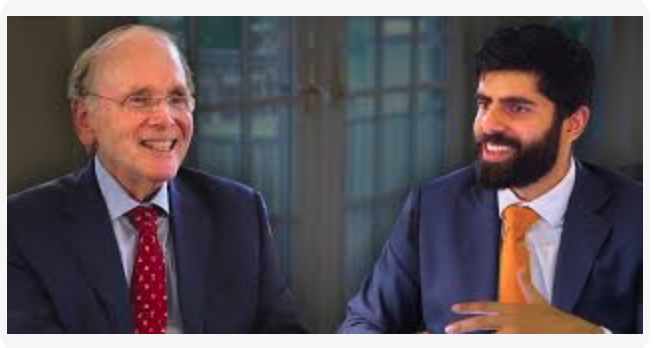
Link to podcast + transcript. The episode was published on 18 September 2024.
Daniel Yergin is an oil / energy expert and author of ‘The Prize’, which is an acclaimed history of oil (and as Dwarkesh says, a parallel history of the 20th century too). I havent read the book. It is there in the bookshelf somewhere waiting to be read. For now this podcast will do. This is a riveting episode with so many interesting threads and themes. Dwarkesh’s range is incredible – from AI to Oil to Geopolitics and History (as i post this, he is doing a live lecture with military historian Sarah Paine). He is also able to see parallels between different contexts, like with kerosene and early AI models, which is fascinating.
What stood out for me from the podcast:
- For 50 years after oil was discovered its primary use was as kerosene for lighting. When Edison invented the lightbulb there was a view that Rockefeller’s Standard Oil would go out of business. It was only when the motor car was invented and became popular that gasoline became the primary use of oil. (“In the 19th century gasoline was a waste product. It went for like three cents a gallon.” Interesting to see if there are parallels w AI, asks Dwarkesh. He says “Currently what we’re using these models for is research and chat and whatever. That’s like the kerosene. What would the equivalent of billions of vehicles look like for AI?”
- The rise of AI and compute is straining the US energy grid. A slow sclerotic industry now has been jolted awake by AI’s demands. Data centers account for 4% of US electricity and is expected to go to 10% by 2030. The US electricity industry, growing 0.35% over the past 10 years, now is seeing growth of 2% a year. Daniel Yergin says “Bill Gates said we used to talk about data centers as 20,000 CPUs. Now we talk about them as 300 megawatt data centers.”
- WWII was determined by who had access to oil. Hitler’s assault on Russia was a play for Baku’s oil fields, Japan attacked Pearl Harbour when an oil embargo was levied on it. Rommel’s advances in North Africa were held back by shortage of oil. He writes to his wife, “Shortage of oil, it’s enough to make one weep.” Here is another from Yergin: “People have heard of kamikaze pilots who would fly their planes into aircraft carriers. One big reason they were doing that was to save fuel so they wouldn’t have to fly back.”
Link to a doc that has my highlights of the podcast.
